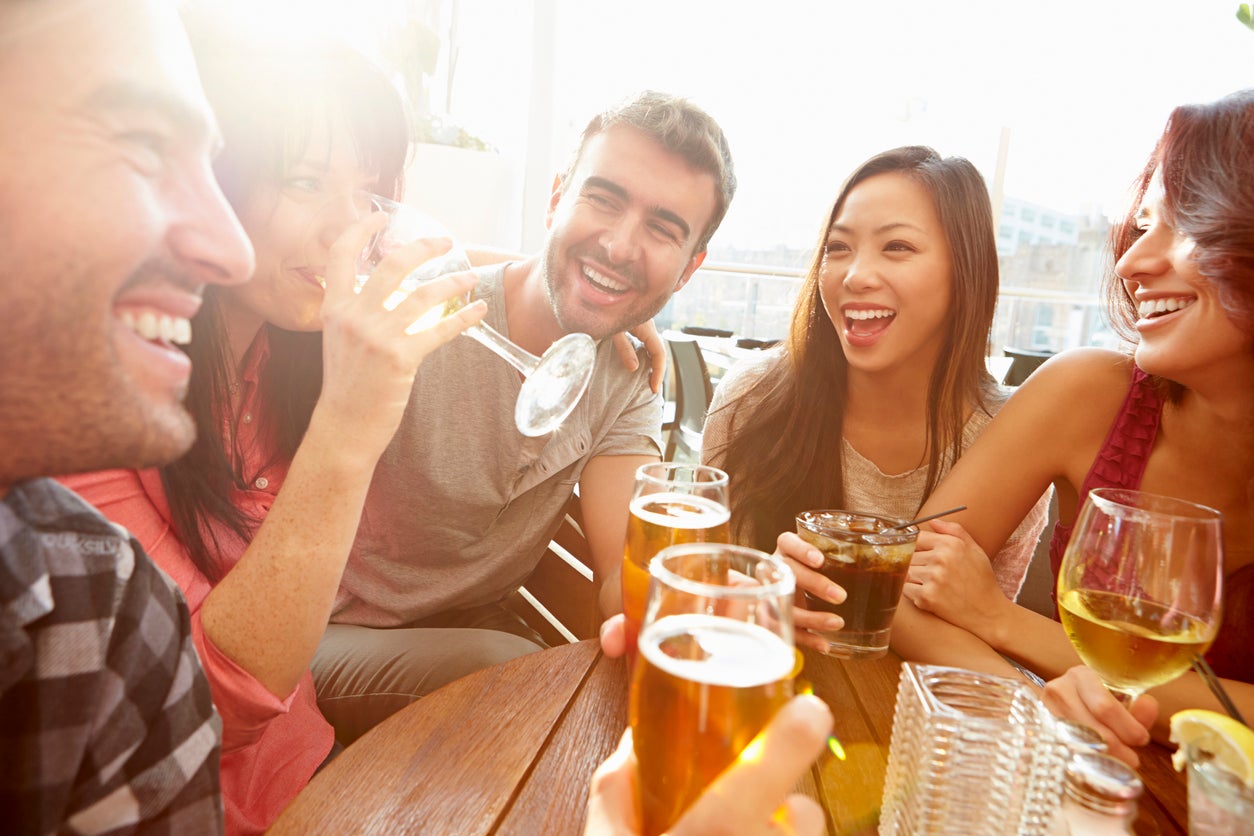Alcohol can help foreign language skills, study finds
Prost! Santé! Salute!

Your support helps us to tell the story
From reproductive rights to climate change to Big Tech, The Independent is on the ground when the story is developing. Whether it's investigating the financials of Elon Musk's pro-Trump PAC or producing our latest documentary, 'The A Word', which shines a light on the American women fighting for reproductive rights, we know how important it is to parse out the facts from the messaging.
At such a critical moment in US history, we need reporters on the ground. Your donation allows us to keep sending journalists to speak to both sides of the story.
The Independent is trusted by Americans across the entire political spectrum. And unlike many other quality news outlets, we choose not to lock Americans out of our reporting and analysis with paywalls. We believe quality journalism should be available to everyone, paid for by those who can afford it.
Your support makes all the difference.Isn’t it amazing how despite not having studied German since you got a B in your GCSE many moons ago, when you’ve had a few drinks and you bump into a few Germans on a night out, you're suddenly fluent?
Erstaunlich, oder?
Well according to a new study, this isn’t just all in your head - bilingual people actually are better at speaking foreign languages after a drink or two.
Researchers from the University of Liverpool, Maastricht University and King’s College London studied 50 native German speakers who were studying at the University of Maastricht in the Netherlands and had recently learned to read, write and speak the local language, Dutch.
Participants were then given either an alcoholic or non-alcoholic drink and asked to have a conversation in Dutch for a few minutes.
How much alcohol they were given depended on body weight, but it was equivalent to just under a pint (460ml) of five per cent beer, for a 70kg male.
Their conversations were recorded and their foreign language skills rated by native Dutch speakers, who didn’t know which participants had consumed alcohol.
The researchers found that those who were slightly intoxicated had better pronunciation than their sober colleagues.
Dr Inge Kersbergen, from the University of Liverpool's Institute of Psychology, Health and Society, who was involved in the study, said: “Our study shows that acute alcohol consumption may have beneficial effects on the pronunciation of a foreign language in people who recently learned that language.
“This provides some support for the lay belief (among bilingual speakers) that a low dose of alcohol can improve their ability to speak a second language.”
Dr Fritz Renner, who was one of the researchers who conducted the study at Maastricht University, added: “It is important to point out that participants in this study consumed a low dose of alcohol.
“Higher levels of alcohol consumption might not have beneficial effects on the pronunciation of a foreign language.”
As any speaker of multiple languages will be able to attest, whilst a couple of drinks may help improve your fluency, one too many and there’s absolutely no chance of anything other than a very slurred version of your mother tongue coming out of your mouth.
Join our commenting forum
Join thought-provoking conversations, follow other Independent readers and see their replies
Comments